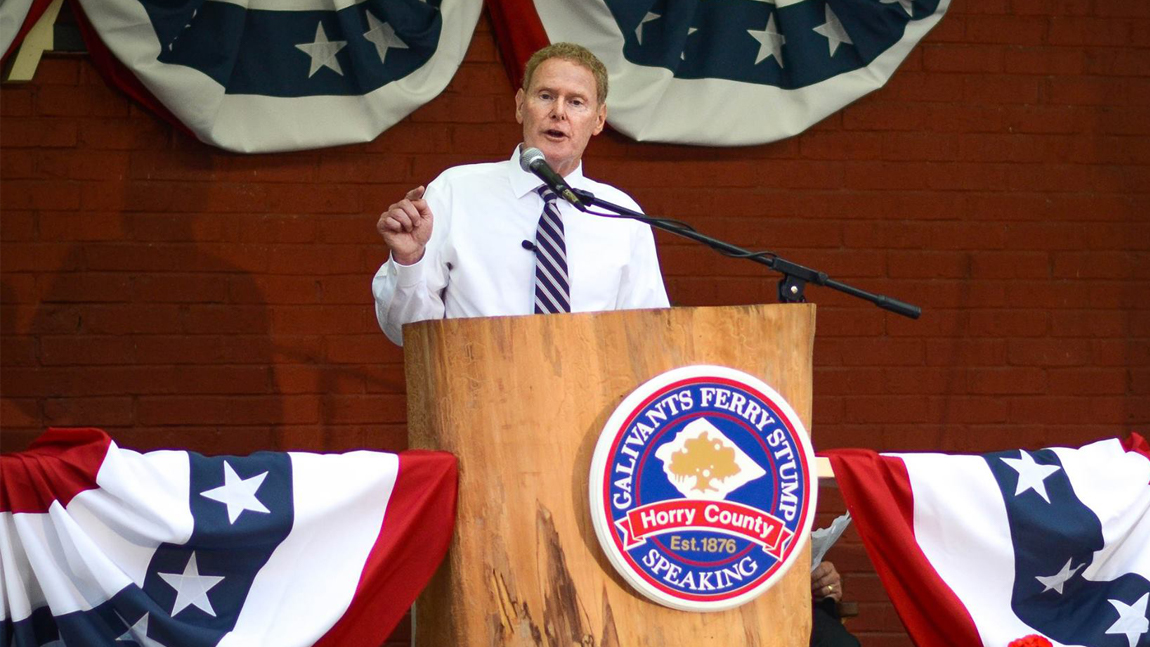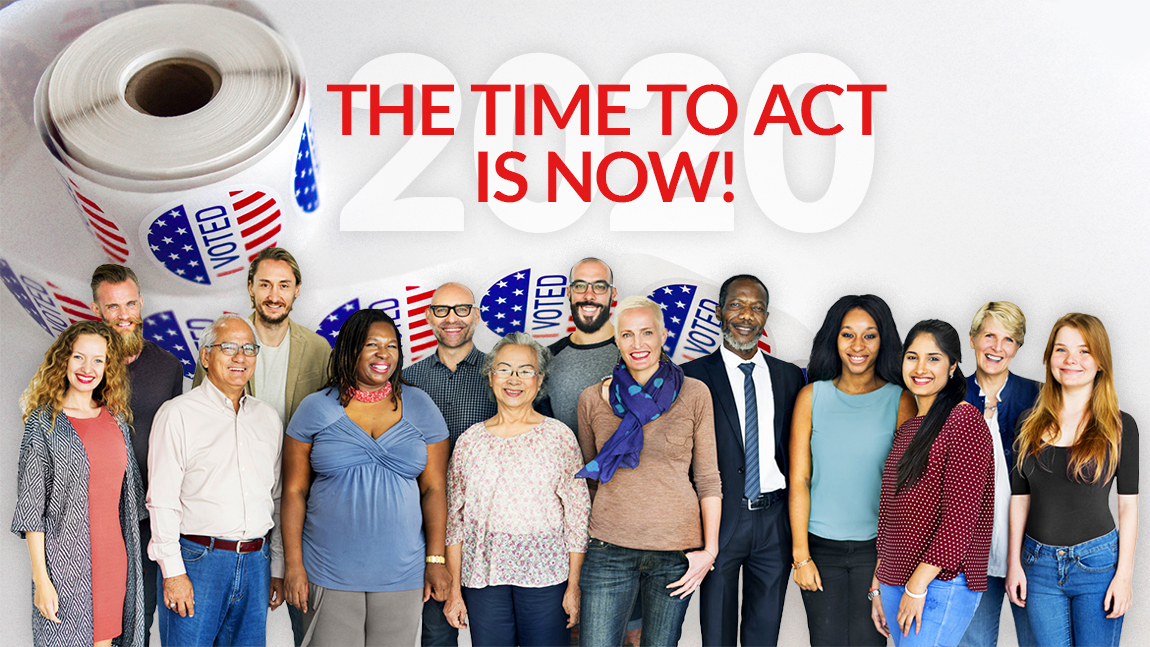A series of issue-focused questions were posed by the Horry County Democratic Party to Mal Hyman, Democratic Congressional Candidate candidate for U.S. Congress in the 7th Congressional District. The following are his thoughtful responses. We are happy to provide this information in order to help South Carolina voters to make their best decision for the upcoming June 26th runoff election.
HCDP also asked Mal Hyman’s opponent, State Rep. Robert Williams, to also gracefully respond to the same questions – but we have received no response.
If we do receive a response from Mr. Williams prior to the runoff, we will certainly publish them here as well.
1. What approach would you take to provide affordable health care coverage for all Americans?
RESPONSE
My approach is a system of Medicare for all. I believe that healthcare is a human right and our sixty-year experiment with private healthcare providers has caused massive suffering, less freedom, less choice, massive waste, fraud and greed. We need a system where everyone is covered, where we pick our own doctors and hospitals, and it must be an efficient system run by the stats. The Canadians have been using a plan like this for almost 50 years. Everyone has healthcare, they live three years longer than we do, and they pay only 60% of what we pay. Even Conservative Canadian businessmen will not give up their system because it is good for business, lowers their national debt, and is run by the provinces.
There is no Republican alternative. Years of Tom Rice and Republicans voting to repeal and promising to replace, and Donald Trump’s claim to provide better, less expensive healthcare for all have given us nothing. For those who rely on Medicaid for care, it’s breathtakingly cruel to take hundreds of billions of dollars from Medicaid to give more tax breaks to the very wealthy. Privatization that depends on a profitable marketplace for corporations to participate is not a solution because it would put millions more at risk of financial disaster if they become sick or injured.
2. Should South Carolina expand Medicaid coverage as provided by the Affordable Care Act?
RESPONSE
Yes, in May, the Robert Wood Johnson Foundation reported that 194,000 more South Carolinians would have insurance in 2019 with Medicaid expansion. Without expansion, unnecessary numbers of South Carolinians suffer because they cannot afford treatment and many die as a result. The devastating impact on human life was known from the outset, but Republicans still refuse to expand Medicaid and their fiscal arguments are no more valid now than they were at the beginning.
South Carolina is losing out on potentially hundreds of millions of dollars by not expanding Medicaid. Medicaid expansion would increase state spending about $111 million, but most of that would be offset by other items like savings from state and local spending on uncompensated care and higher Federal matching funds.
South Carolina is limiting economic growth. Expanding Medicaid participation reduces the number of emergency room visits, which are the most expensive form of treatment. Increased coverage allows people to visit doctors and obtain prescription medicines that they currently avoid because they cannot afford them. Doctor visits and preventative care can reduce the more costly expenses associated with treatment at later stages of illnesses.
Expanded healthcare results in more healthcare providers and facilities, which creates more jobs. For those with coverage, healthy people are more productive on the job and lose less time due to sickness. More jobs, more healthy people working and an expanding economy generate more tax revenue for state and local governments.
3. Should work requirements be imposed on Medicaid recipients? Please explain.
RESPONSE
No, imposing work requirements is a version of blaming the poor for being poor. The implication is that Medicaid recipients are not working because they’re content with their Medicaid benefits. No one chooses to be poor and it’s reasonable to assume that many Medicaid recipients are currently working.
Medicaid is only available to those over 65, disabled and the very poor who cannot obtain coverage any other way. Using the Federal poverty line as a measure, a very poor family of three earns less than $20,420 a year. In South Carolina, a family of three is poorer because they must earn less than $13,681 to qualify for Medicaid. Not surprisingly, more women than men receive Medicaid and the largest age group for recipients is under 18. The consequence is that poor women and children are most vulnerable to Medicaid work requirements.
As Donald Trump learned, healthcare policy is complicated and Republican plans to impose work requirements on Medicaid recipients could run into conflict with their refusal to expand Medicaid. In South Carolina, a single person cannot earn more the 67% of the Federal poverty level, or slightly more than $9,000 a year, to be eligible for Medicaid. Those earning between 67% and 100% of the poverty line, or between roughly $9,000 and $13,860 a year, will find themselves caught in a gap between Medicaid and Affordable Healthcare Act subsidies. The fate of those caught in the gap is unknown because the Republican plan lacks details, but so far, only states that have expanded Medicaid have been granted work requirement waivers.
4. Do you support legislation restricting the sale of assault type weapons and gun stocks as well as to strengthen background checks for those who seek to purchase a gun?
RESPONSE
Yes. More people have died of gun violence in the United States in the last 40 years than have died in all the wars we’ve fought. We need universal background checks and an end to the sale of semi-automatic weapons, bump stocks, and large magazines. The need is particularly acute in South Carolina with its horrendous record of domestic abuse. South Carolina has ranked in the top ten states in the nation in the rate of women killed by men every year that records have been kept.
The problem has many sources, not the least of which is the NRA. The NRA has been more destructive and powerful than most Americans imagined, and I refuse to accept NRA contributions. I am proud though, to accept the endorsement of Mom’s Demand Action.
I propose forming a blue ribbon committee to investigate violence, of which gun violence is a subset. One example to examine is the Australia model. Since imposing additional restrictions following a mass shooting in 1996, the number of homicides is the lowest in 25 years. The number is more remarkable considering the growth of Australia’s population during the time.
5. Do you support offshore drilling off the coast of South Carolina? If not, what would you do about the Trump administration plan to expand offshore drilling?
RESPONSE
I have been and continue to be opposed to offshore drilling and seismic testing. The threat to the ecosystem and the tourism and fishing industries is too great. Spills occur and one spill, it’s gone and it’s gone forever. Tourists would be gone, fish would be gone, leaving years of clean up in their place.
Job creation would be temporary as workers from other areas explore, dig and build. Construction means burdening an already over-burdened infrastructure as heavy equipment arrives. When construction is completed, the workers will head for other offshore construction and the heavy equipment will have left its mark on the environment.
What end is served by offshore drilling? The US is an oil exporter, so there is no national security argument for energy independence. The oil would be exported to be sold on the world market. The benefits would go to profitable oil companies that enjoy tax breaks like oil depletion allowances.
There is more opportunity in renewable energy than in fossil fuels. Wind and solar are abundant sources of energy in South Carolina. Wind turbines can be manufactured in South Carolina instead of China. Solar is now less expensive than fossil fuel and some areas are selling excess solar power to the energy gird.
Congressional oversight, investigations and legislation could stop the Trump administrations energy policies. A Democratic Congress with a veto-proof Senate would reverse the dynamic that exists in Washington.
6. Do you believe climate change is a serious threat to our nation and the world? Please explain.
RESPONSE
Yes, as most scientists and studies show, climate change is real and it cannot be denied away. Each year, we’re experiencing the hottest year on record. In the US, once-in-a-hundred-year hurricanes and super-storms occur more frequently. Drought envelopes the west and wildfires range as far north as Alaska leaving devastation and homelessness behind. Record snow fall melts into spring flooding across the Midwest.
The Pentagon recognizes that climate change leads to conflict around the world. When floods hit Pakistan, the Taliban stepped in to help. Climate change-induced droughts in the Mid East played a large role in the ongoing Syrian civil war as people fought for control of the water. The same can be said for the Sudan and other conflicts throughout the world as people fight for scarcer water resources.
Congress has responded to climate change with denial and cowardice. Our civilization is a force of nature! Many in Congress would rather protect the oil and gas industry than God’s creation and future generations. I strongly support new investments in sustainable energy, which will create millions of good jobs. We need a moratorium on fracking until the issues of methane release at the wellhead, as well as the impact of drilling on water quality, can be adequately studied. Air and water pollution are an environmental taxation without representation on future generations.
7. Do you believe individuals should be able to marry the person they love regardless of their sex? Please explain.
RESPONSE
Yes, and I support the Supreme Court decision that everyone has the right to marry the person they love. As with most civil rights issues, a court decision is not the last say in the matter. The recent Court decision in favor of the bakery that refused to bake a wedding cake for a same sex couple is a visible sign of the prejudice that remains. Full non-discrimination extends to areas from housing and employment to education and it must be enforced.
I will advocate for legislation that protects and preserves dignity and equality with regard to sexual orientation and gender identity. The LGBTQ community deserves full recognition and support regarding personal expression, marriage, family planning, medical care, and legal protection. I believe that our country derives its strength from our diversity.
8. South Carolina ranks near the bottom of all states in education quality and outcomes. How would you change this?
RESPONSE
Invest in education. Education is one of the most important issues facing the state of South Carolina, and the whole country. As an educator for more than four decades, I have taught people of all ages, and all walks of life: my own children, students in high school and college, and even men in our criminal justice system. I will fight to make education a priority for legislators, community leaders, teachers, and students. I will fight to make education a higher priority for Congress.
In the 1960s, the U.S. led the world in graduating students from college. Now we are 19th. College must be made affordable and student debt must be restructured at a much lower rate. This can be done by a small tax on stocks, bonds, and currency transactions. The wealthy must pay their fair share in taxes. Tax subsidies and government waste need to be cut.
The limits on Head Start funding mean that only half the children eligible for Head Start can attend. It is time to fully fund Head Start, affordable child care, school lunches, after school programs, SNAP, summer jobs for teens, and other programs. A dollar spent on early childhood education yields about $7 in return. It’s economic common sense. I will work to create a Children’s Bill of Rights—to guarantee food, healthcare, decent housing, good schools, and safe streets for all children.
Quality education needs to be affordable and accessible to all of South Carolina’s children. If you don’t make that investment, you don’t belong in government.
9. Do you support the Trump administration’s current immigration policies and his plan to build a wall?
RESPONSE
No. The current immigration policies are inhumane and un-American. Babies are being ripped from their mother’s arms and tent cities are being constructed to hold children. Nearly 2,000 children have been detained in the last six weeks. The conditions are beyond belief and no explanation can justify the policy. Groups ranging from the American Academy of Pediatrics to the United Nations human rights office are condemning the actions.
“She was just inconsolable. … We all knew why she was crying,” . . . “She was crying because she wanted her mother, and there was nothing we could do.” Those are the words of Dr. Colleen Kraft, president of the American Academy of Pediatrics. She went on to say, “This is something that was inflicted on this child by the government, and really is nothing less than government-sanctioned child abuse.”
The Trump/Sessions policy of separating families is an affront to human decency. The trauma of separation and child abuse will haunt these children the rest of their lives.
The wall is a political symbol that will only cause more division, both in and out of the country. The recent immigration flow has been out of the US, not into the US, and a wall does not address the millions who are already here. The wall is Donald Trump’s symbolic gesture to the despair in the US. Just as Mexico will not pay for Trump’s wall, building a wall will not relieve the despair.
10. What would you do to protect Social Security and provide improved benefits for older Americans?
RESPONSE
Social Security must be increased to provide dignity to seniors. Currently, Social Security is the sole source of income for about half of South Carolina retirees. About 37% of each Social Security check goes toward out-of pocket health care costs. Twenty percent of our citizens cannot afford to fill their prescriptions. Currently, no Social Security payroll taxes are paid on incomes above $128,000–so the upper middle class and the wealthy pay a lower share of their income on this tax than the rest of us. Eliminating this cap on payroll taxes will be fairer, it will stabilize the Social Security Trust fund, and Social Security payments would increase.
I oppose any chained consumer price index, and would favor the so-called elderly index. Increased benefits for a surviving spouse and for children of the disabled can be implemented through a Financial Transaction Tax, and slightly higher taxes on the wealthiest 1%.
11. What would be your approach to criminal justice reform and to provide fair treatment to all regardless of race, ethnicity or sexual orientation?
RESPONSE
I believe that the open wounds of our past demand a new commitment to criminal justice. Early in my teaching career, I taught at a medium security men’s prison in California, and sometimes I would ask the inmates, “When did you lose hope and lose your dreams?” They would say at the age of 11, 12, or 13. They made some bad choices—but they did not pick their parents, they did not pick their schools, they did not pick their community, they did not pick their country. Society has made some bad choices, too. Either we have liberty and justice for all, or we don’t. Either we do unto the least of these, or we don’t. We are reaping what we have sown.
We need more police training and new ways to police the police. Training by itself is not effective. The effects of training need to be monitored to understand what works and what doesn’t. Mandatory minimum sentencing and the cash bail system result in too many cases of the penalty exceeding the crime. As a consequence, people are separated from their families and jobs without regard to their individual circumstance. The war on drugs has failed and left many in jail. We need drug treatment on demand, expanded drug courts and a comprehensive study of the real risks of marijuana.
12. Do you support restrictions on the ability of women to obtain an abortion after consulting with their physician?
RESPONSE
No. I believe that a woman deserves full autonomy over the choices concerning her health and family planning, and support doesn’t end at birth. The United States trails much of the developed world with regard to paid leave after the birth of a child and the lack of universal healthcare clearly impacts the future health of a woman and her family. I believe that new parents should have paid time off to bond with their newborns and that universal healthcare is a right, and will fight to improve such practices.
13. Do you support passing a state law allowing doctors to prescribe medical marijuana to patients?
RESPONSE
Yes. It’s important to distinguish between recreational marijuana and medical marijuana. Recreational marijuana has higher levels of THC, the chemical that provides the “high.” Medical marijuana higher levels of CBD, which does not have the psychoactive effects of THC and may counter some of the effects of THC. Medical marijuana does not produce a high.
The therapeutic benefits of medical marijuana cover a diverse range of illnesses including: 1) reducing inflammation associated with chronic pain, 2) decreasing the pressure that can cause glaucoma, 3) treatment of schizophrenia and 4) reduce the nausea and vomiting the comes with chemotherapy.
Medical marijuana may be a useful tool to deal with the opioid crisis. First, because medical marijuana can relieve chronic pain and it is not addictive, medical marijuana could be an alternative to prescribing opioids for pain. Second, recent studies conclude that the CBD ingredient in medical marijuana may block the neural pathway underlying addiction. It’s not the pain that results in addiction, but the neural pathway that needs to be repeatedly stimulated. Medical marijuana can be used as an addiction exit drug.
14. Do you support passing a state law requiring the governor of South Carolina to accept all federal revenues offered to support Medicaid and Medicaid expansion efforts in the state?
RESPONSE
Yes. The benefits of accepting the federal revenues are too great to allow the governor to determine the outcome. As I more fully explained in my response to Question 2, without expansion, illnesses increase, lives are lost, jobs are not created and billions of dollars in federal funds go to other states. The current governor and his predecessor were wrong when they said the state could not afford the federal funding. The state cannot afford to reject the federal funds.
More Information
»Mal Hyman For Congress ![]()






